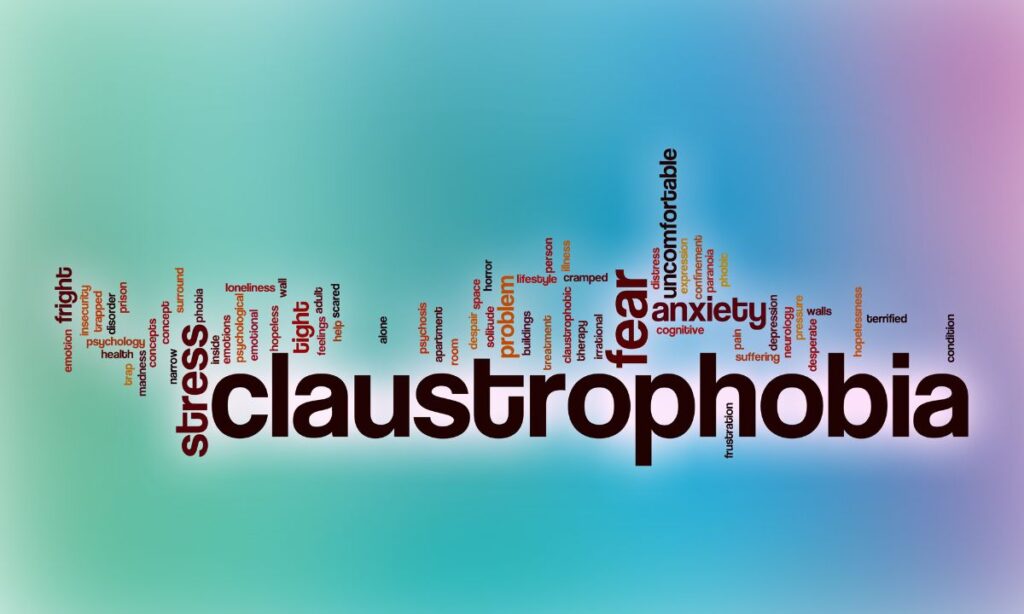
Understanding Claustrophobia: Causes, Symptoms, and Treatment Options
Claustrophobia Meaning
Claustrophobia is a type of anxiety disorder that involves an intense fear of enclosed spaces or situations where escape may be difficult. This fear can be triggered by a variety of situations, such as being in an elevator, airplane, or crowded room. People may experience panic attacks, sweating, trembling, and difficulty breathing when faced with these situations. It can significantly impact their daily life and limit their ability to participate in certain activities.
Claustrophobia Causes
The exact causes are not fully understood, but it is believed to be a combination of genetic, environmental, and psychological factors. Some studies suggest that a traumatic experience, such as being trapped in a small space, can trigger the development of claustrophobia. Other factors that may contribute to the development include a family history of anxiety disorders, a history of physical or emotional abuse, and certain personality traits, such as being highly sensitive or anxious.
Symptoms of Claustrophobia
The symptoms can vary from person to person, but typically include feelings of panic, anxiety, and fear when in enclosed or small spaces. Physical symptoms may also occur, such as sweating, trembling, rapid heartbeat, and difficulty breathing. In severe cases, individuals may avoid situations that could trigger their phobia, which can significantly impact their daily life and activities.
Treatment options for claustrophobia
There are several treatment options available for individuals with claustrophobia. One common approach is cognitive-behavioral therapy (CBT), which involves working with a therapist to identify and change negative thought patterns and behaviors related to claustrophobia. Exposure therapy, where individuals gradually confront their fear of enclosed spaces in a controlled environment, can also be effective. Medications such as anti-anxiety drugs may be prescribed in some cases. It’s important to work with a healthcare professional to determine the best treatment plan for your individual needs.
If you are suffering, you know how overwhelming and limiting this fear can be. Hypnotherapy is a non-invasive and effective treatment option that can help you overcome your fear of enclosed spaces. In this guide, we’ll explore how hypnotherapy works and what you can expect from treatment.

Preparing for your Hypnotherapy session
Before your hypnotherapy session, it’s important to prepare yourself mentally and physically. Make sure you are well-rested and have eaten a light meal beforehand. Wear comfortable clothing and avoid any tight or restrictive clothing that may make you feel more claustrophobic. It’s also important to communicate with your hypnotherapist about any specific fears or concerns you have about the treatment. They can work with you to create a personalized treatment plan that addresses your individual needs and goals. Finally, try to approach the session with an open mind and a positive attitude, as this can help you get the most out of the experience.
How hypnosis works for Claustrophobia
Hypnotherapy is a form of therapy that uses hypnosis to help individuals overcome their fears and anxieties. During a hypnotherapy session, the therapist will guide the individual into a state of deep relaxation and suggest positive and calming thoughts and images. This can help the individual to reframe their thoughts and feelings about enclosed spaces, and to develop a sense of calm and control when faced with triggering situations. Hypnotherapy can also help individuals to identify and address any underlying psychological or emotional issues that may be contributing to their claustrophobia.
What to Expect During and After Your Hypnotherapy Treatment.
During your hypnotherapy treatment, you will be guided into a state of deep relaxation and focused attention. Your hypnotherapist will use various techniques to help you overcome your fear of enclosed spaces, such as visualization exercises and positive affirmations. After the session, you may feel a sense of calm and relaxation, as well as a newfound sense of confidence in your ability to cope with your claustrophobia. It’s important to continue practicing the techniques you learned during your hypnotherapy session in your daily life to reinforce the positive changes and continue to overcome your fear.
Coping strategies for Claustrophobia
In addition to seeking professional help, there are several coping strategies that individuals with claustrophobia can use to manage their symptoms. Deep breathing exercises, visualization techniques, and progressive muscle relaxation can all help to reduce anxiety and promote relaxation. It can also be helpful to practice exposure to small, enclosed spaces in a controlled and safe environment, such as a therapist’s office. Additionally, finding ways to distract oneself, such as listening to music or engaging in a calming activity, can be effective in managing symptoms of claustrophobia.
